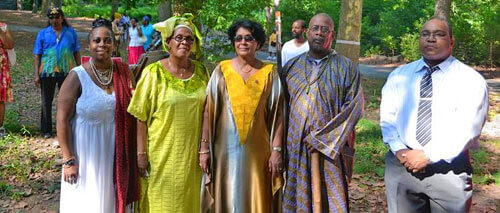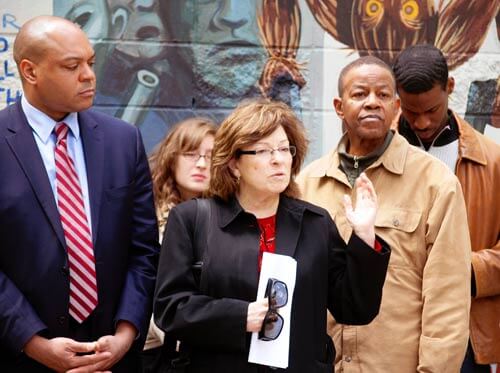U.S. Rep. Yvette D. Clarke (D-Brooklyn) has warned that New York’s Caribbean and African American communities could see a reduction in the number of congressional legislators if the recently submitted New York State Congressional Redistricting Plan remains unchanged and made into a law by a three-judge judicial panel.
The proposal, submitted by Judge Roanne L. Mann of Federal District Court in Brooklyn, appointed to study the issue and make recommendation, reduces the number of congressional districts with 50 percent or more voting age Blacks (Adults 18 and more years old) from four to three.
In a written response to the proposed redistricting plan, Clarke, the daughter of Jamaican immigrants, who represents the predominantly Caribbean 11th Congressional District in Brooklyn, said that the proposed 9th Congressional District “does not preserve the current core of the 11th Congressional district, divides communities of interest, and violates the traditional redistricting principle of compactness.”
Clarke said that the proposed change is a violation of the United States Constitution and the Voting Rights Act of 1965.
She said, under the proposed changes, Brooklyn’s growing Caribbean population could become “fractured and diluted.
“It is my goal to keep these populations whole and together to ensure that their voting power is not diluted,” she told Caribbean Life.
“Keeping these communities together will ensure that these populations have a full and fair opportunity to elect candidates of their choice” she added.
In his letter to Judge Mann, Brooklyn Assemblyman Karim Camara, chair of the New York State Black, Puerto Rican, Hispanic and Asian Caucus, said, he, too, “strongly” objects to the proposed redistricting plan.
He, therefore, called on the judge to “preserve communities of interest in central Brooklyn and not fracture Caribbean-American and African-American communities from each other in order to attach (other) neighborhoods like Howard Beach, Gerritsen Beach and Mill Basin.”
Camara said the Brooklyn congressional maps, recently released by Judge Mann, split traditional African-American and Caribbean-American “communities of interest” throughout the borough.
“The core communities that have traditionally been part of the 10th and 11th
districts – both protected under the Federal Voting Rights Act – have been decimated without any reasonable explanation,” he said.
Another Brooklyn Assemblyman, Hakeem Jeffries, who represents the 57th Assembly District in the New York State Legislature, said the proposed “marriage does not appear to serve the best interests of any of the residents involved.
“According to these proposed lines, only one congressional district now resides entirely within Kings County, notwithstanding the fact that at 2.5 million residents in Brooklyn is the largest county in New York State,” he wrote to Judge Mann. “Indeed, we can accommodate three entire congressional districts wholly within the borders of the county.
“In this context, there is no plausible reason why the new NY-8 (proposed district) reaches into Queens to pick up three additional neighborhoods that have nothing in common demographically with the communities that have traditionally made up the 10th congressional district,” Jeffries added.
“It is also deeply troubling that the map for the proposed new NY-8 fails to take into
consideration the express concerns presented to the court by a coalition of prominent clergy
members, civic leaders, community activists and service providers from Fort Greene and Clinton Hill,” he continued.
“For the reasons set forth above, I strongly urge the court to modify its proposed plan and preserve the communities of Fort Greene and Clinton Hill, as well as parts of Prospect Heights, within the new NY-8,” Jeffries said.

























